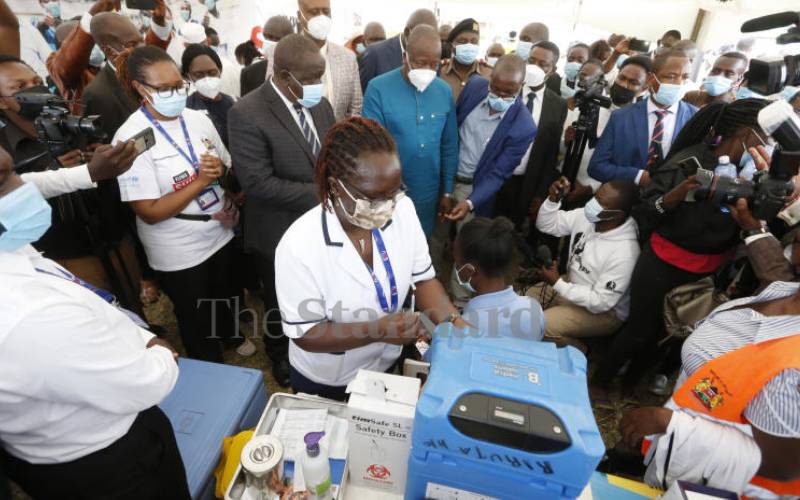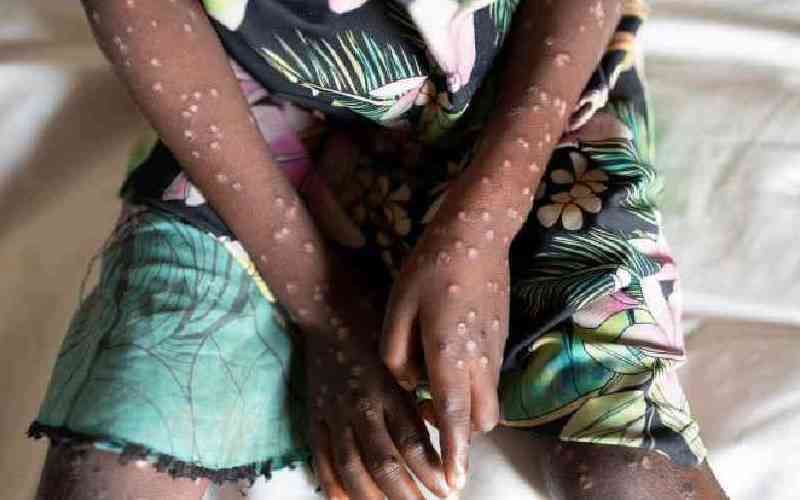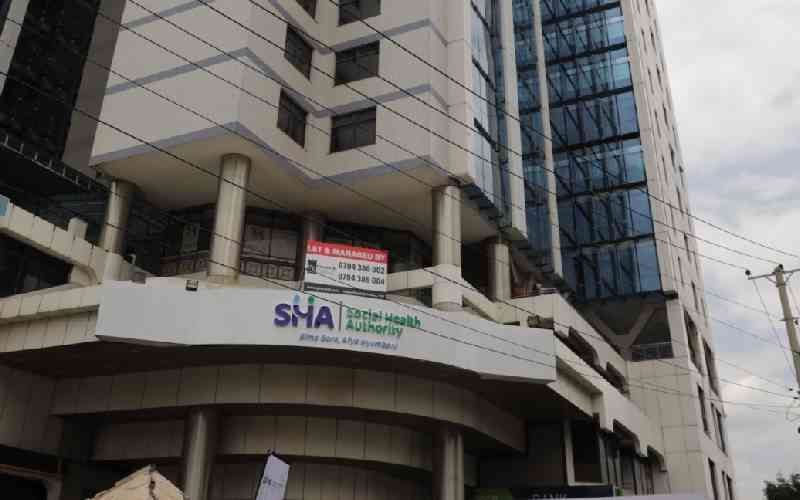
The resurgence of Covid-19 cases has been blamed on the emergence of new variants, according to health experts.
Reports from the Ministry of Health indicate that the rate of infections has been high in the past two weeks, which coincided with the official start of election campaigns.
Prof Julius Oyugi, the director of research at the University of Nairobi’s Institute of Tropical and Infectious Diseases, said the ministry should conduct sequencing and “find out which variant is in circulation, and causing an increase of cases.”
According to a study released on March 16 by Kemri Wellcome Trust, Kenya has at least 143 distinct SARS-CoV-2 lineages, with omicron being the most dominant variant.
Prof Oyugi said the current variant might be Omicron, Delta, or a combination of the two. “I suspect there could be another variant in the country,” he added.
He said the relaxation of Covid-19 containment measures saw people ease on doses and face masks “an issue that might also be contributing to a rise in cases,” he said.
He said he had noted a worrying trend of the vaccinated having low immunity, and urged the ministry to revamp the vaccination programme.
Dr Andrew Mulwa, the Acting Director of Medical Services, said the country is in the mid of the sixth wave and that they were on alert. “The ministry is conducting surveillance, and monitoring the situation,” said Dr Mulwa, adding that despite the surge in infections, the rate of hospitalisation is still low.
“We do not have very sick people due to uptake of the Covid-19 jab by the population,” he said.
Since the outbreak of the pandemic in March 2020, Kenya has reported five waves, with the fifth having been widespread, but not severe like the Delta, which had high fatalities and hospitalisation rates.
“People thought the disease had fully been contained because they were not seeing people hospitalised and dead,” said Dr Mulwa, explaining that the ministry has revamped vaccination by involving counties and vaccination stands at 32 per cent against a target of 70 per cent by end of 2022.
At least 1,312 new Covid-19 cases have been reported from May 22 to June 5, with a gradual increase in positivity rate. Yesterday the ministry announced a 6.6 per cent positivity rate.
High infections were reported on June 3, with 150 cases, while May 23 had 32.
The positivity rate in the past five days has been above five per cent, with yesterday being the highest. On June 2 it was at 5.7 per cent, while on June 3, June 4, and June 5 the ministry recorded 5.0 per cent, 5.1 per cent, and 5.1 per cent respectively.
On June 5, up to 112 people tested positive for the virus, with Nairobi leading in terms of distribution at 91 cases, Kitui 10, while Murang’a, Kiambu and Kericho had six, three and two cases respectively.
As of June 4, a total 18,271,847 vaccines were administered, with only 352,410 shots of booster vaccines administered.
Meanwhile, the Ministry of Health is alarmed at the public’s avoidance of the Covid-19 jabs, yet it has more than 10 million unused doses.
Low uptake of the jabs is attributed to low infections, few cases of hospitalisation and drop in Covid-19-related deaths in the last few months.
Covid-19 Vaccine Taskforce chairperson Mr Willis Akhwale said Kenyans only seek vaccination when there is a rise in cases, a major hitch.
Most of the vaccines, according to Dr Akhwale, have a long shelf life, running up to 2023, and 2024, but some might expire in October.
In April, the ministry announced that 840,000 doses of AstraZeneca vaccines had expired in February. “Vaccine availability is not a challenge... We have adequate doses,” said Dr Akhwale.
He said there was a slight increase in vaccine uptake, with the high rate of infection reported in the country for the past two weeks.
Data by the ministry reveals that at least 18,277,404 people had been vaccinated by June 6, of which 16,498,295 are adults. Another 1,390,380 doses have been administered to children aged between 15 and 17.
As per the data, Nyeri leads in terms of the percentage of adults fully vaccinated at 52.9 per cent, followed by Nairobi at 49.1 per cent.
Vaccination levels for other leading counties are 39.9 per cent for Kakamega, Nakuru (38.5 per cent), Laikipia (38.4 per cent), Taita Taveta (37.8 per cent), Kirinyaga (37.6 per cent), Kisumu (37 per cent), Kiambu (35.8 per cent) and Siaya (35.5 per cent).
Counties with the lowest uptake of the jab include Isiolo, Wajir, Tana River, Mandera and Marsabit, with only 13, 11, 10.7, 10.3 and 9.7 per cent respectively.
About five months after the launch of booster vaccines, only 353,449 such doses have been administered.
Dr Akhwale said to ensure the government vaccinates 27 million people, plans are in place to involve chiefs at the location level.”
He said experts had predicted rise in infections following cold weather, which according to the Meteorological Department, is reported in the month of May to August.
Dr Moses Masika, a virologist at KAVI Institute of Clinical Research, said the risk of being infected is high.
Dr Masika said most reported cases were mild, but some people required hospitalisation.
Amref Health Africa CEO Dr Githinji Gitahi asked the ministry to scale up vaccination, to avoid hospitalisation.
He called on the ministry to revamp surveillance, including testing and gene sequencing, to establish the nature of the virus in circulation. “The new wave seems slower than previous ones, considering the positivity rate has remained at about 5 per cent for several days. The most important issue is to ensure everyone is protected through vaccination,” said Dr Githinji.
 The Standard Group Plc is a multi-media organization with investments in media platforms spanning newspaper print
operations, television, radio broadcasting, digital and online services. The Standard Group is recognized as a
leading multi-media house in Kenya with a key influence in matters of national and international interest.
The Standard Group Plc is a multi-media organization with investments in media platforms spanning newspaper print
operations, television, radio broadcasting, digital and online services. The Standard Group is recognized as a
leading multi-media house in Kenya with a key influence in matters of national and international interest.











